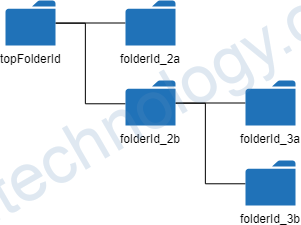Copy from: https://zetcode.com/golang/exec-command/
Go exec command tutorial shows how to execute shell commands and programs in Golang.
The Run function starts the specified command and waits for it to complete, while the Start starts the specified command but does not wait for it to complete; we need to use Wait with Start.
Go os/exec
The os/exec package runs external commands. It wraps os.StartProcess to make it easier to remap stdin and stdout, connect I/O with pipes, and do other adjustments.$ go version go version go1.18.1 linux/amd64
We use Go version 1.18.
Go exec program
The Run starts the specified command and waits for it to complete.
package main
import (
"log"
"os/exec"
)
func main() {
cmd := exec.Command("firefox")
err := cmd.Run()
if err != nil {
log.Fatal(err)
}
}
In the code example, we execute the Firefox browser.
Go exec.Command
The Command returns the Cmd struct to execute the specified program with the given arguments. The first parameter is the program to be run; the other arguments are parameters to the program.
package main
import (
"bytes"
"fmt"
"log"
"os/exec"
"strings"
)
func main() {
cmd := exec.Command("tr", "a-z", "A-Z")
cmd.Stdin = strings.NewReader("and old falcon")
var out bytes.Buffer
cmd.Stdout = &out
err := cmd.Run()
if err != nil {
log.Fatal(err)
}
fmt.Printf("translated phrase: %q\n", out.String())
}
In the code example, we transform the input via the tr command.cmd := exec.Command(“tr”, “a-z”, “A-Z”)
The tr standard Linux command translates, squeezes, and/or deletes characters from standard input, writing to standard output. In our case, we transform lowercase letters to uppercase ones.cmd.Stdin = strings.NewReader(“and old falcon”)
Through the Stdin field, we pass a string to the command as its input.var out bytes.Buffer cmd.Stdout = &out
The output of the program will be written to the bytes buffer.$ go run command.go translated phrase: “AND OLD FALCON”
Go exec command with multiple args
We can pass multiple arguments to the exec.Command.
package main
import (
"fmt"
"os/exec"
)
func main() {
prg := "echo"
arg1 := "there"
arg2 := "are three"
arg3 := "falcons"
cmd := exec.Command(prg, arg1, arg2, arg3)
stdout, err := cmd.Output()
if err != nil {
fmt.Println(err.Error())
return
}
fmt.Print(string(stdout))
}
The example runs the echo command with three arguments.$ go run multiple_args.go there are three falcons
Go exec command capture output
The Output runs the command and returns its standard output.
package main
import (
"fmt"
"log"
"os/exec"
)
func main() {
out, err := exec.Command("ls", "-l").Output()
if err != nil {
log.Fatal(err)
}
fmt.Println(string(out))
}
The example captures the output of the ls command and prints it.
Go cmd.StdinPipe
The pipe allows us to send the output of one command to another. The StdinPipe returns a pipe that will be connected to the command’s standard input when the command starts.
package main
import (
"fmt"
"io"
"log"
"os/exec"
)
func main() {
cmd := exec.Command("cat")
stdin, err := cmd.StdinPipe()
if err != nil {
log.Fatal(err)
}
go func() {
defer stdin.Close()
io.WriteString(stdin, "an old falcon")
}()
out, err := cmd.CombinedOutput()
if err != nil {
log.Fatal(err)
}
fmt.Printf("%s\n", out)
}
In the code example, we write a string to the standard input inside a goroutine.cmd := exec.Command(“cat”)
The cat command concatenates the given files to the standard output. When no file is given, or with -, the command reads standard input and prints it to standard output.stdin, err := cmd.StdinPipe()
We get the standard input pipe of the cat command.go func() { defer stdin.Close() io.WriteString(stdin, “an old falcon”) }()
Inside the goroutine, we write a string to the stdin pipe.$ go run stdinpipe.go an old falcon
Go cmd.StdoutPipe
The StdoutPipe returns a pipe that will be connected to the command’s standard output when the command starts.
package main
import (
"fmt"
"io/ioutil"
"log"
"os/exec"
"strings"
)
func upper(data string) string {
return strings.ToUpper(data)
}
func main() {
cmd := exec.Command("echo", "an old falcon")
stdout, err := cmd.StdoutPipe()
if err != nil {
log.Fatal(err)
}
if err := cmd.Start(); err != nil {
log.Fatal(err)
}
data, err := ioutil.ReadAll(stdout)
if err != nil {
log.Fatal(err)
}
if err := cmd.Wait(); err != nil {
log.Fatal(err)
}
fmt.Printf("%s\n", upper(string(data)))
}
The example reads the output of the echo command through the pipe and transforms it into uppercase letters.cmd := exec.Command(“echo”, “an old falcon”)
The command to run is the echo command with a single string argument.stdout, err := cmd.StdoutPipe()
We get the standard output pipe.if err := cmd.Start(); err != nil { log.Fatal(err) }
The command is executed with the Start function; it does not wait wait for it to complete.data, err := ioutil.ReadAll(stdout)
We read the data from the pipe.if err := cmd.Wait(); err != nil { log.Fatal(err) }
The Wait waits for the command to exit and waits for any copying to stdin or copying from stdout or stderr to complete. It closes the pipe after seeing the command exit.$ go run stdoutpipe.go AN OLD FALCON
In this article we have executed external commands in Golang.






